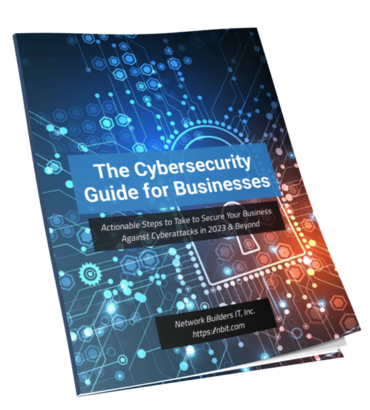
Best Cybersecurity Practices for Small Businesses
In today’s digital world, small businesses are increasingly vulnerable to cyber threats. According to recent surveys, a staggering 43% of cyber-attacks target small businesses. While large corporations with dedicated cybersecurity teams can afford comprehensive protection measures against such attacks, most small businesses lack the necessary expertise and resources to implement effective security measures. As a result, they are often seen as easy targets for hackers looking for valuable information or ransomware payouts.
To help safeguard your business from potential cyber-attacks and protect sensitive data effectively, this article provides an overview of best cybersecurity practices that all small businesses should consider implementing ASAP.
Implement Multi-factor Authentication (MFA) for All Users and System Accounts
One of the best cybersecurity practices for small businesses is to implement multi-factor authentication (MFA) for all users and system accounts. MFA adds another layer of security to login credentials, requiring additional verification beyond just a password. This can include something you have, like a physical token or smartphone app, or something you are, like biometric identification such as fingerprint or facial recognition.
By implementing MFA for all users and system accounts, you can greatly reduce the risk of unauthorized access to sensitive data and systems. Even if hackers manage to guess passwords or obtain them through phishing attacks, they will be unable to bypass the additional layers of security provided by MFA without physical access to the user’s device.
While some employees may initially balk at having to go through extra steps during login processes, it’s important that small business owners impress upon them the importance of security in today’s digital climate. In addition to protecting company assets from cyber threats, MFA measures also help ensure compliance with regulations more effectively by providing accountability logs that show who accessed what information, when and from where which would also prove helpful in audits.
Use Appropriate Encryption Protocols
To help safeguard small businesses from cyber-attacks, one of the best cybersecurity practices is to use appropriate encryption protocols. Encryption protocols are a set of rules that encode information and make it unreadable unless decrypted with the right key. By encrypting valuable data, small business owners can keep their sensitive information safe and secure from unauthorized access.
When choosing encryption protocols, small business owners should consider the level of protection required for their specific needs. For example, some industries may require higher levels of security due to regulatory requirements such as HIPAA or PCI compliance. It’s also essential to ensure that all company devices and networks are encrypted using industry-standard tools like SSL/TLS certification and WPA2-PSK encryption protocol. Implementing such encryption measures will not only help keep sensitive data out of reach but can also boost customer trust in your brand due to increased data privacy protection.
Create a Security Policy to Define Best Practices for Password Management etc.
To safeguard against cyber-attacks, small businesses must establish a comprehensive security policy to outline best practices for password management and other cybersecurity measures. Passwords are the first line of defense against malicious activity, so all employees should be trained to create strong passwords, update them regularly, and avoid sharing them with anyone. Multi-factor authentication should also be implemented to add an extra layer of protection.
In addition to password management, the security policy should cover other important areas such as software updates, network security protocols (such as firewalls), and employee access control. All software and applications used by the business should be updated regularly to address any known vulnerabilities or bugs that can be exploited by hackers. Network security protocols like firewalls help protect against unauthorized access attempts while employee access controls limit who has access to sensitive information within the organization.
Regularly Audit User Activity
Regularly auditing user activity is an essential component of any robust cybersecurity strategy, especially for small businesses. By monitoring the behavior of users on your network, you can identify potential vulnerabilities and detect suspicious or malicious activity before it becomes a threat to your business’s security. Regular audits allow you to keep track of who has access to sensitive information and what actions they are taking on the network.
It’s not enough to simply install security software or implement password protocols; human error remains one of the most significant threats in cybersecurity. Regular audits help ensure that employees are following established security procedures such as changing passwords regularly, logging out of accounts when finished using them, and reporting any suspicious activity immediately. By keeping detailed records through regular auditing processes, businesses can also be better prepared in case of a data breach by providing evidence needed during legal proceedings.
Incorporating regular audit practices into your cyber risk management plan strengthens your overall cybersecurity posture while mitigating insider threats which account for up 60-75% percent all successful attacks (per ISACA). Remembering that with technology always evolving so should our practices surrounding its usage.
Conclusion
Small businesses need to take cybersecurity seriously in order to prevent devastating consequences such as financial loss, damage to reputation, and legal repercussions. It is essential for business owners to stay up to date on current threats and vulnerabilities within their technological systems by doing regular assessments and vulnerability scans. Employing basic security measures such as updating software regularly, using strong passwords, encrypting sensitive data, and limiting access are also crucial in preventing cyber-attacks along with employee education on cybersecurity best practices.

